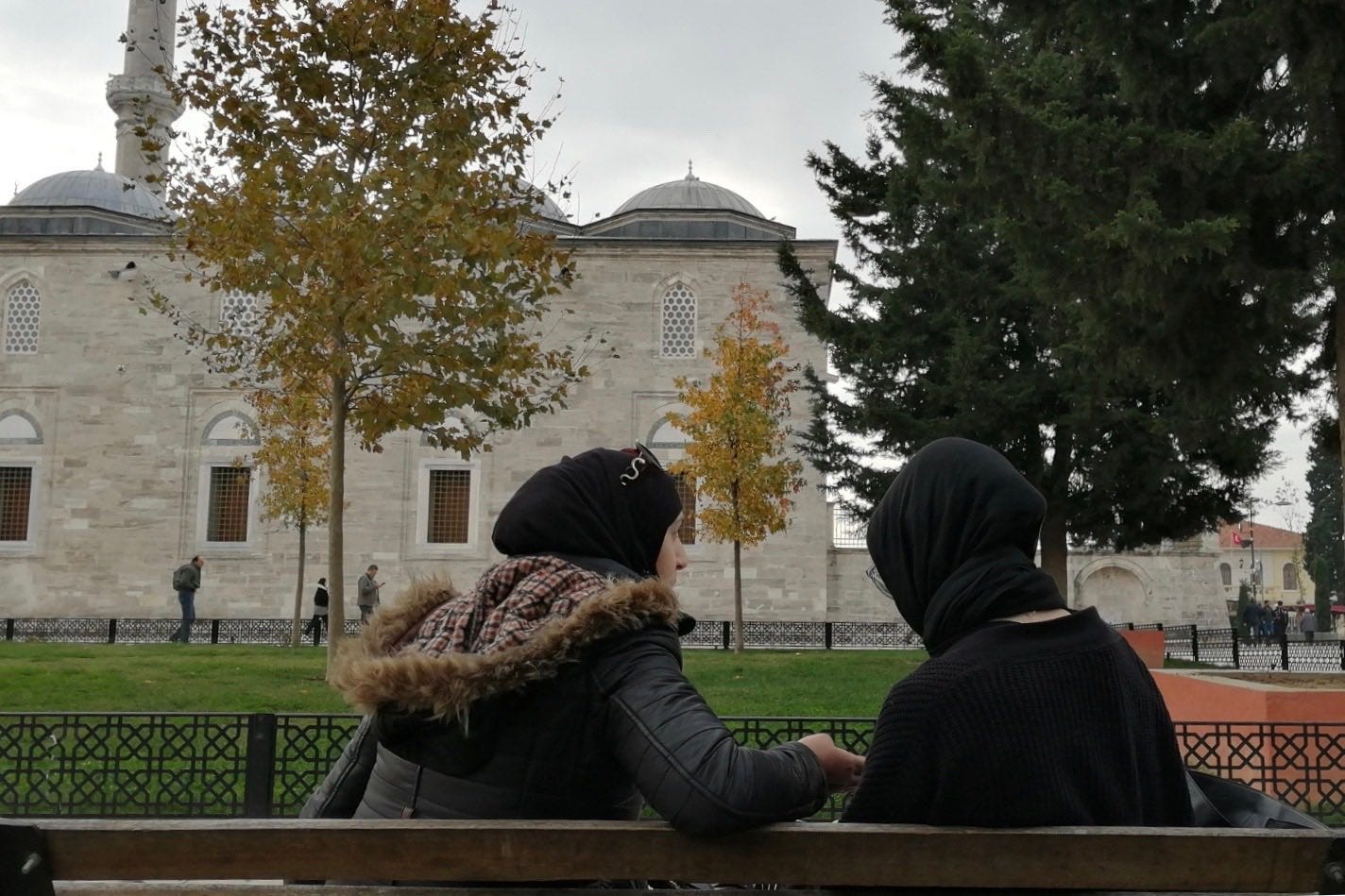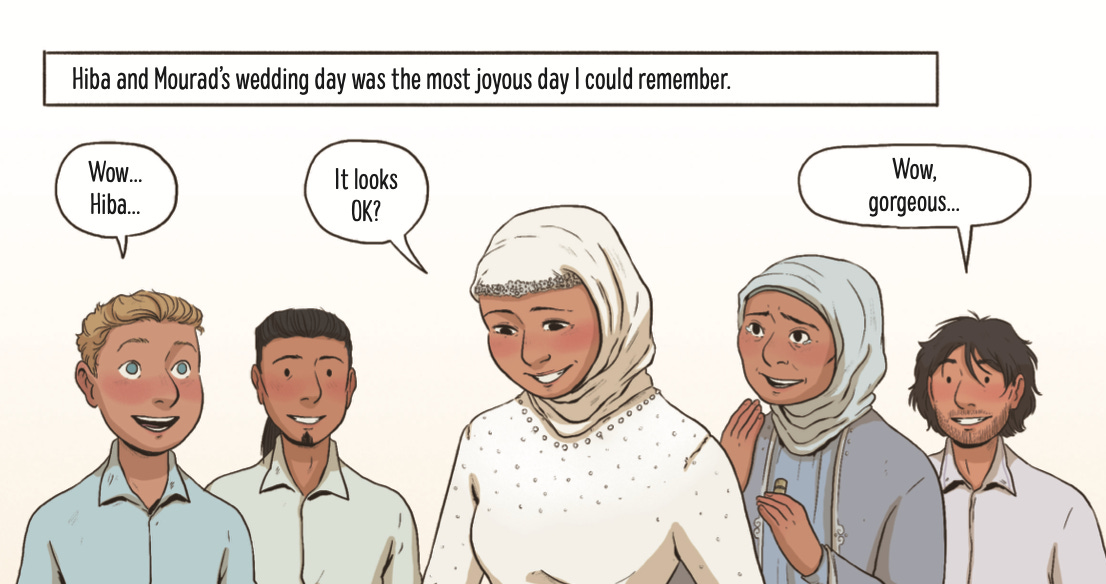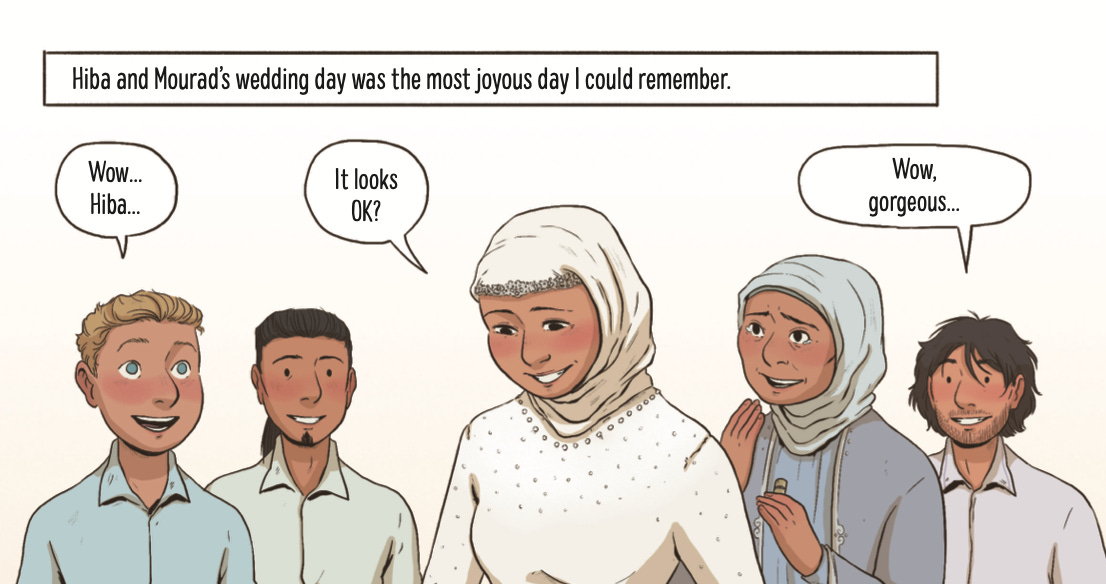For this week’s Neus News, I spoke to Muhammad Najem’s sister Hiba, who played an instrumental role not only in writing Muhammad Najem, War Reporter but also in Muhammad’s reporting back in Syria. She’s also become my very close friend over the last few years!
Here’s our conversation…

Nora: Hi! So, you and I first started talking about the idea of me writing a book about your family when you were still in Syria. What did you think of the idea at the time?
Hiba: I didn’t really think about it much [laughs]. Our situation was so bad and we didn’t know if we would be alive in the future. Every day we thought we would die at any moment. So it was so hard to think about the future at that time.
But I do remember talking about it and I remember being happy because maybe then everyone would know the suffering we were going through, and maybe we could change the lives of other Syrians continuously living in war. I just wanted to do anything to stop the war in Syria.
Nora: And then as we started working on the book, we developed another goal. You said, I don’t want the book to only show all the awful things happening in Syria, but also the good things about Syria from before the war.
Hiba: Yes! Because my country was so beautiful before the war. We lived beside the river and would go to the countryside a lot. It was so happy, it was such a beautiful life.
Nora: Is that what you would do on the weekends, when your dad wasn’t working in the family carpentry shop?
Hiba: Yes! We didn’t have a car, so went to an area beside our house a lot and had picnics, with food and juice, something like this. But sometimes we’d share our relatives’ car and go to the river or a lake with a lot of trees. Or sometimes we’d go to Damascus and we’d go to eat ice cream with pistachios with my family.
Nora: I think about this a lot: that your experience is so different than your brother Muhammad’s. Your whole childhood was in beautiful Syria before the war, which didn’t start until you were almost done with college, whereas Muhammad was just a little kid when the war started and he grew up during the fighting.
Hiba: Yes, it was an awful thing for Muhammad. He had to take on a lot of responsibility from a young age. When he would wake up, he would have to bring the fire wood with his daddy, to help bring water from the well… so it was hard.
In the book, you gave a deep, clear picture of the situation and what we really lived through. And I think that is very good.
Nora: I’m so glad you think so! We really prioritized factual accuracy in the book, including in the illustrations, except for one thing. Do you know what I’m talking about?
Hiba: No, what?
Nora: Your wedding dress!
Hiba: [Laughs] Oh, yes!
Nora: Because you said that the wedding dress you wore in real life was just the only wedding dress you could get during the war, and it wasn’t your dream wedding dress. And so [our illustrator] Julie [Robine] and I talked to you about what your dream wedding dress would have looked like. And then the illustration in the book of your wedding dress is actually what you wish you had wore to your wedding, right?
Hiba: Yes, it was so beautiful! When I saw it, I said, Oh my Gosh! It’s really very beautiful. When I see it, I think it’s… shining. Sparkly. Just shining.
Nora: I don’t know if you know this, but in the first draft of the book, it was just like a very small little illustration on the page. And now there is a whole page in the book of just your wedding dress, because it turned out so beautiful!

Hiba: You and Julie gave me my dream dress.
I want to say one more thing. I was so happy when you visited us two years ago. I remember the first time I saw you, after you came on the airplane and through the airport, I was so surprised! I thought, Oh an American, she will be so tall, and have blue eyes, and long blonde hair. And I didn’t know your age, I thought you are a big journalist in CNN, you must be 30 or 40 years old.
Nora: [Laughs] You thought I was a tall, blonde and blue-eyed 40-year-old?!
Hiba: Yes! But then you said you’re two years younger than me, and I was like, Oh my gosh.
Nora: That made it more fun, though, because then we became best friends.
Hiba: Yes! Our friendship is so close, talking almost every day.
Nora: It is truly one of the biggest blessings of my life to have you as a friend.
Hiba: Me too, me too.
